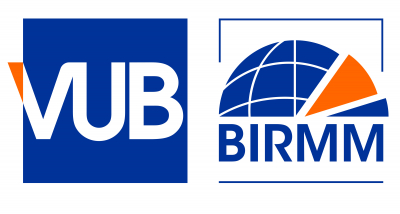
EDGE is currently recruiting 3 pre-doctoral, and 3 post-doctoral researchers. EDGE is a strategic research programme of the Vrije Universiteit Brussel. It explores innovative solutions that deliver new ways of political decision-making that help both effectively tackle real-world challenges to democracy and strengthen European democracies. EDGE is concerned with challenges to democratic governance in general, and more precisely with
- issues arising from the problematic discrepancy between short-term political cycles and the need for long-term solutions to environmental crises;
- the disconnect between citizens and the formal actors and institutions of representative democracies;
- the gap between the promise of democratic values of equality and non-discrimination, and democracies’ failure to establish intersectional equality.
EDGE not only studies the world ‘as it is’, but also ‘makes plans for a better democratic future’. In response to key challenges, EDGE re-thinks how to best enact democratic principles, and identifies and explores democratic innovations and governance solutions from different models of democracy (participatory, deliberative, and representative), and across them (hybrid). EDGE includes emotions and affect in studying current challenges to democratic governance & activism, and ‘designs in’ affect in democratic innovation and governance solutions.
EDGE’s three research themes are:
WP 1 Climate, Sustainability, and Democratic Innovations addresses the problems arising from the discrepancy between short-term political cycles and the need for long-term solutions to environmental crises. The fundamental question it seeks to address is: to what extent can democratic institutions deal with long-term policy challenges such as climate change, and how can democratic innovations meet the challenge of sustainability? In other words, how can we make democracy more future-proof in the face of a variety of environmental crises? We thereby focus on the double-potential of much-needed innovative solutions to contribute to both effective environmental governance across multiple levels of governance and a rejuvenation of (European) democracies. In so doing, the WP moves beyond an established focus on climate mitigation, to the full spectrum of sustainability policies, including land-use practices and environmental pollution. It focuses on contemporary developments such as new social movements and new affects stemming from environmental loss as well as related deliberative and participatory experiments and legal innovations. WP1’s focus aligns with the trend in climate governance that has increasingly turned towards more structural and institutional solutions, including the design of democratic decision-making procedures. This focus is cross-cutting, boldly mixing political science and policy, legal as well as conceptual innovations. It takes risks in asking big questions and addresses these by assembling an internationally recognized team of experts.
WP2 Enhancing Representative Relationships re-thinks and re-designs representative relationships between citizens and the central actors and institutions of representative democracy. Its innovation lies in bringing new answers to an ‘old’ problem that many political scientists, activists and practitioners are concerned with: the crisis of representative democracy and the worryingly troubled relationships between citizens and electoral politics. Increasingly, political parties, elected representatives and representative assemblies are passionately critiqued for not acting in accordance with core democratic values (accusations of self-interest and corruption), for their elitism (their socio- economic and cultural distance from ordinary people) and overall failure to establish an affective bond with citizens. These critiques have, also with the aid of social media, translated into a surge of activism -oftentimes focused on inequalities and climate change- through which citizens express both their discontent about representative democracy and aspirations for a revival thereof. This WP investigates what may be learned from contemporary activism for innovating and enhancing representative relationships in European democracies. The WP unpacks how citizens evaluate the performances of those who claim to speak on their behalf, analyses the representative claims and performative attributes of citizen-led protests, and builds bridges between scholarship on political representation, political affect and performance studies. It takes risks by going against the tide of seeking solutions in participatory and deliberative innovations rather than in innovating formal representative relationships – a risk it is confident to take given the team’s expertise and the demand for ways to strengthen representative relationships observed both within formal political and civil society actors and institutions.
WP3 Intersectional Inequalities and Democratic Innovations addresses the long-standing paradox of European democracies that proclaim equality and non-discrimination as fundamental values, invest considerable efforts in promoting equalities but have not managed to make inequality decline nor vanish. It also addresses the paradox between the practices of exclusion and bordering that are required for sustaining democratic polities in Europe, and the proclaimed principles that all human beings are morally equal and free. WP3 focuses on two main research questions: how are intersectional protests and solidarities in view of equ(al)ity and non-discrimination built, and how can minority and migrant perspectives alter dominant ways of thinking that materialize in public discourses and policies? Feminist and postcolonial research has shown that we need to integrate the perspectives of those who are victims of discrimination and exclusion to understand mechanisms of inequality. Traditional social science methods like surveys, interviews and focus groups have not succeeded in fully capturing minority and migrant perspectives. Moreover, researchers have rarely put the spotlight on how minority and migrant perspectives can alter dominant ways of thinking about mechanisms that produce intersectional inequalities, and how they can influence debates in the arenas of power. These questions necessarily integrate different research fields that have hardly reached mainstream social movements and public policy studies. WP3 is at the forefront of integrating disparate insights through innovative methods like deliberative experiments, affect analysis, art-based experiments, and restorative and deliberative interventions. Although this approach is high-risk because of its double innovative nature - i.e., altering dominant views by minority approach perspective and the mix of new methods -, it is also high-gain: this approach stands a better chance to answer the pressing question of how, after decades of aiming for more equal and just societies, we may get closer to that target.
They welcome applications from political and social scientists interested in investigating these current challenges to Europe’s democracies. Selection for the position will be based on three main criteria: 1) your scientific qualifications and experience, 2) the innovative quality of your research proposal, and 3) for post-doctoral candidates: your plans for scientific output and submitting research proposals to external funding bodies.
Research Proposal (about 2000 words) - mandatory for post-doctoral and pre-doctoral applications
Your research proposal is embedded in the core research themes of EDGE, by consequence tackles issues related to democracy and preferably deals with emotions and affect. Your proposal sketches your central research puzzle and question(s), its relation to (and potential synergies with) the EDGE core themes (and, maybe also, members), the key theoretical debates the project speaks to, and its research design and methods.
Scientific output and future research proposals (about 2000 words) - mandatory for post-doctoral applications; optional for pre-doctoral ones
List i) the funding schemes, calls and agencies you are planning to submit research proposals to, including timing and research theme (5-line abstract suffices); ii) the scientific outputs you envision during your mandate, i.e. academic publications, conference (organisation/participation) and maybe newer (virtual) academic communication and outreach. Here also, we would be highly interested in your ideas for collaboration and synergies with other EDGE members and activities.
What is offered
- Pre-doctoral mandate of 4 year, starting 1 September 2023.
- Post-doctoral mandate of 2 year (1 year + 1 year) of minimum 50% and maximum 100%, with max. 20% coordination work. Should you opt for a part-time contract, your research outcome would cover the same items but we would adjust the goals to your part-time engagement. Starting date 1 September 2023 (later starting date can be discussed).
- Means and support to build your future academic career.
- A diverse and dynamic research environment in the heart of Europe.
- A research team composed of PhDs, post-doctoral researchers and junior and senior professors affiliated to various VUB research groups and entities: the Political Science Department, the Brussels School of Governance, RHEA (Research Centre Gender, Diversity, Intersectionality), BRIO (Centre for Information, Documentation and Research on Brussels), and BIRMM (Brussels Interdisciplinary Research centre on Migration and Minorities).
Deadline for aplications is April 14th, 2023, by mail to Jessie.Scheldewaert@vub.be, with subject “EDGE PRE-DOC APPLICATION” or “EDGE POST-DOC APPLICATION”.
Your application must include:
- Letter of motivation.
- CV, including list of publications.
- Research proposal (please indicate clearly, upfront to which of the WPs it relates).
- Listing of future research output and research project plans (2024-2025).
- Please also submit 1 recent publication that you are particularly proud of. For pre-doctoral researchers this might well be your master thesis.
If you have questions, please send an email to: karen.celis@vub.be
